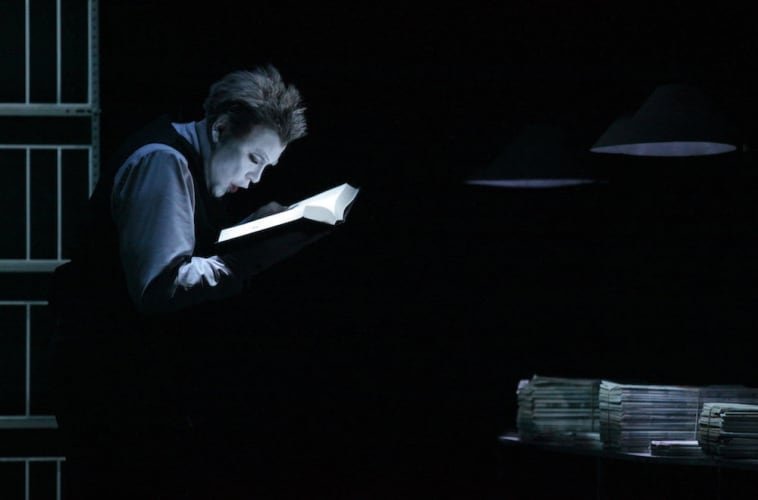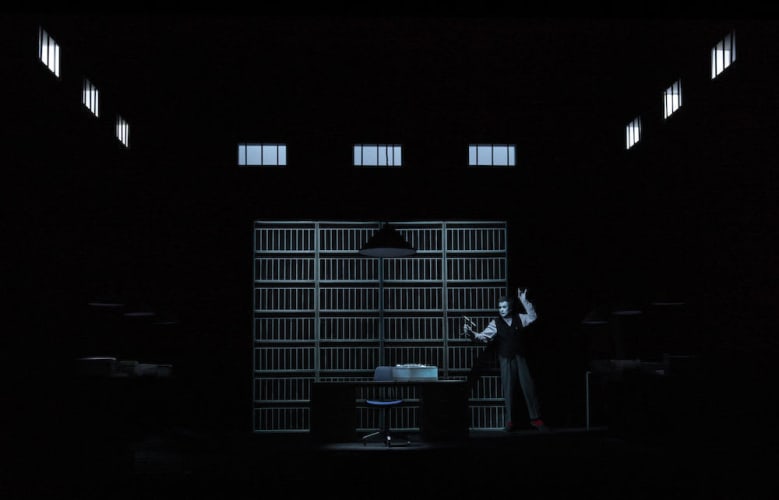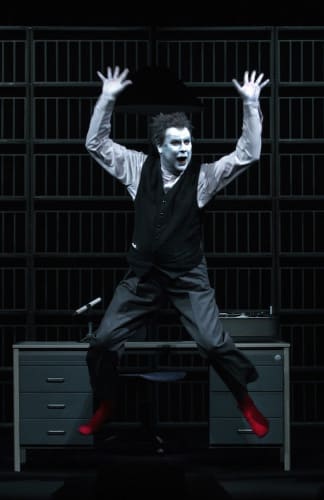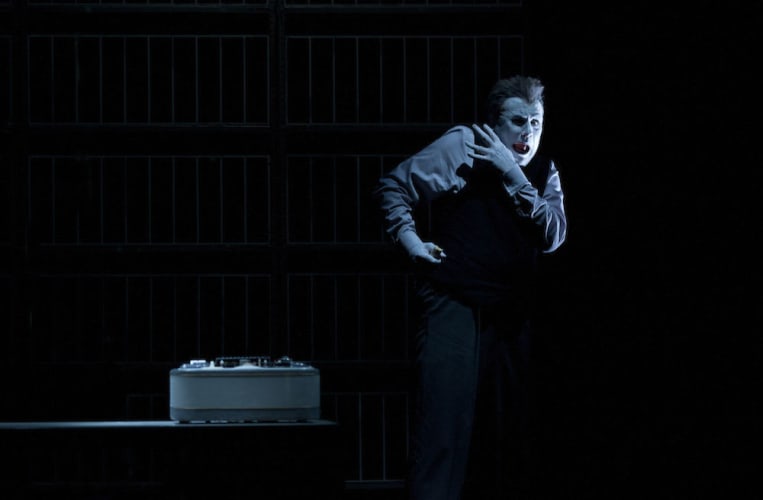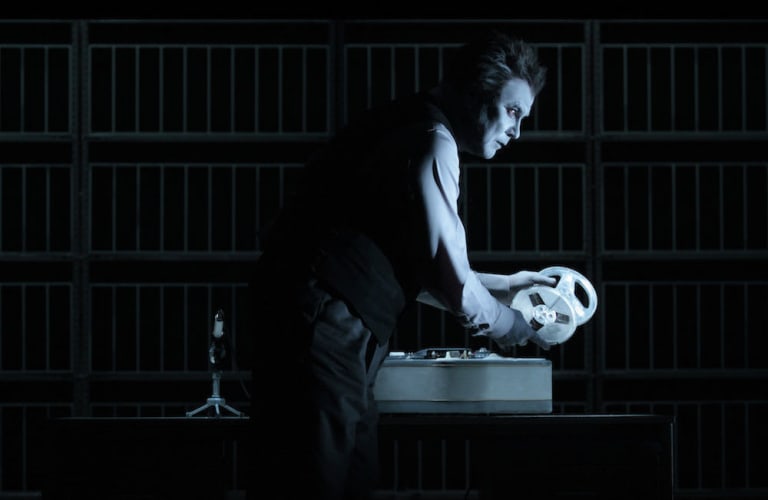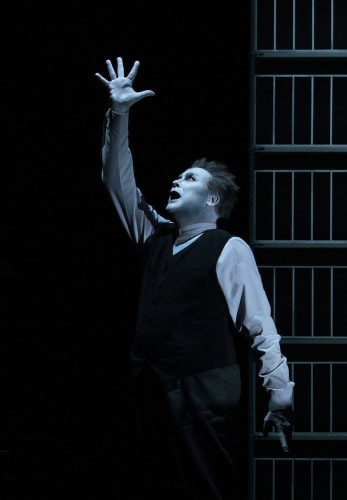Premièred in 2009, played worldwide, the Irish press apparently loving it in 2012, Robert Wilson’s eccentric interpretation of Samuel Beckett’s Krapp’s Last Tape hits London with a clap of thunder and lightening. And stuns the audience.
Beckett’s opening stage instructions (a page and a half out of the monologue’s eight page total) are stretched to at least a third (if not more) of the productions seventy-minute length.
Thunder crashes, torrential rain falls in lighting streaks down a darkened cell bunker—the noise is unbearable, life is unbearable. Is this the coming of the flood?
Wilson, who professes an affinity with Beckett and has met him (Ionesco too, which is worth remembering when watching this production), feels that though Beckett’s ‘structure is solid’ he ‘can be free in it’.
And free he is: to bring his own idiosyncratic performance art to a work of memory, memorably played by Harold Pinter, John Hurt, and Patrick Magee for whom it was written (the three I’ve seen). The list is illustrious and long. Vaudevillian Max Wall played it, too.
But none like this. Wilson turns it into a multi-media installation, its idiom taken from black and white silent movies and the sad mad clown, red socks the only flash of colour, and perhaps taking inspiration from the first line of stage directions: ‘a late evening in the future’—permission to experiment?
Grotesque, white-painted ‘Kabuki’-faced figure with spiky-haired wig and spiky gestures in a futuristic archive, everything ‘Donald Judd’ neat and ordered, light picking out the fastidious shelving and the piled manuscripts, yet the man has clearly lost his marbles.
Every expressionistic gesture is taken to its laboured limit and beyond. Asylum inmate perhaps—the windows are very high on the wall—a dementia sufferer clinging to recorded memories, one must be patient with the afflicted. But if only that noise would stop; when it does the silence is deafening.
Fingers suffering from exaggerated stiffness, eating a banana takes forever, and good lord he has to do that twice. A nightmarish scenario, the slowness of old age, the clownish body, the mind not going gently into the night.
A mime drama, long-held poses—for a moment I wonder whether he is an automaton winding down and not human at all—with the occasional reactive cackles and screeches, he is a cartoonish goon gone ape in his solitude. Is this what awaits us all?
Wilson’s Krapp’s Last Tape is a precision of timing, but it’s an alienating experience, one snatches at brief moments of light relief: the song ‘Now the day is over, night is drawing nigh…’ sounding like a recording of Tom Waits for instance.
Beckett and Wilson, a postmodern pairing made in heaven? Wilson’s work I’ve loved for a long time—but this fractured stylized clowning makes for what feels like an interminable evening.
Old age is not for cissies, one famous comedienne once said, nor is this production. There are a few walkouts, people checking watches, and silence when darkness falls on the play. Is it over? Is this the end?
The cheers finally do come for an icon of the avant-garde. A good-natured, child-like skip and a jump in character at curtain call, and he is gone.
